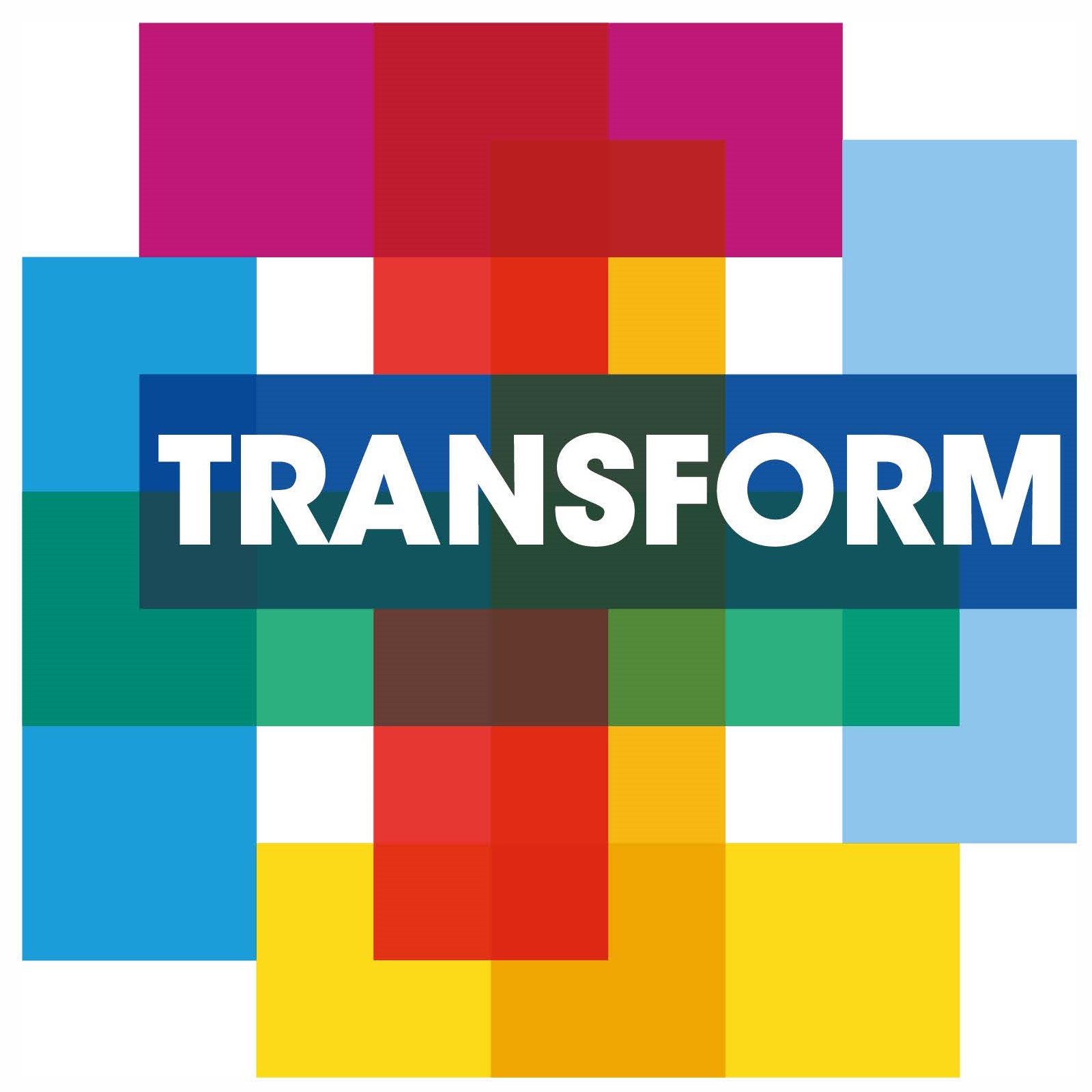Research: The Future of Work
Published on: 26/02/2024
The importance of the informal economy in Kenya cannot be overstated; it accounts for 24% of Kenya’s GDP and also employs five times more workers than the formal economy.
TRANSFORM has been working to understand the current realities and future possibilities for the millions of entrepreneurial Kenyans who hustle to sustain livelihoods across the informal economy.
Brink, Procol Africa, Busara, Laterite, Ideas Unplugged, and TRANSFORM have collaborated throughout to deliver this work, alongside hundreds of ecosystem actors and informal economy entrepreneurs.
Below you’ll find all seven chapters that make up this piece of research.
Chapter 1: Understanding the Informal Economy Landscape and Future of Work in Kenya
This chapter explores existing literature focused on the crucial role of the informal economy in Kenya, highlighting its contribution to GDP, job creation, and the unique challenges faced by women and youths within it. It analyses current policies, the emerging “Jobtech” trend, and identifies key areas for further research to support this dynamic sector more effectively.
To find out more, please download Chapter 1 here.
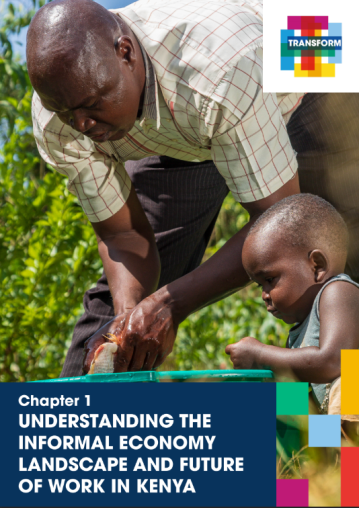
Chapter 2: From Kibanda to Content Creation – Exploring the Invisible 83% in Kenya’s Informal Economy
This chapter delves into the lively and multifaceted Kenyan informal economy, where more than 15 million individuals carve out distinct paths to economic opportunity. Beyond conventional labels such as “mama mbogas” and “boda drivers,” this dynamic environment flourishes with a variety of livelihood approaches and diverse work portfolios. We break down overarching categories to concentrate on urban and peri-urban regions, recognising the intersecting influence of digital platforms and gig economy roles. Our focus narrows on three main segments within the informal economy: Food Service Provision, Creatives & Entertainment, and Agri-Livelihoods.
To find out more, please download Chapter 2 here.
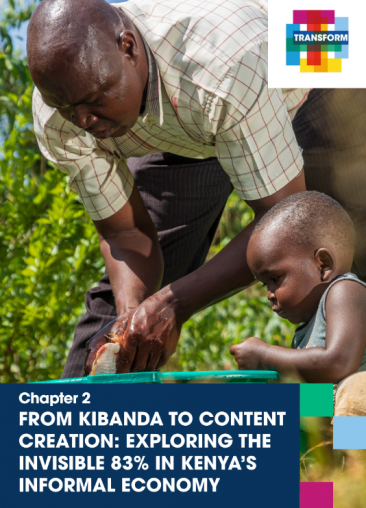
Chapter 3: 400 Voices of Resilience and Aspiration from across Kenya’s Informal Economy
This chapter delves into the realities of Kenya’s informal economy, often misrepresented and misunderstood. Through conversations with 400 entrepreneurs across three key sectors: Food service provision, Creatives & Entertainment, and Agri-livelihoods, we paint a vivid picture of their daily lives, motivations, and challenges.
To find out more, please download Chapter 3 here.
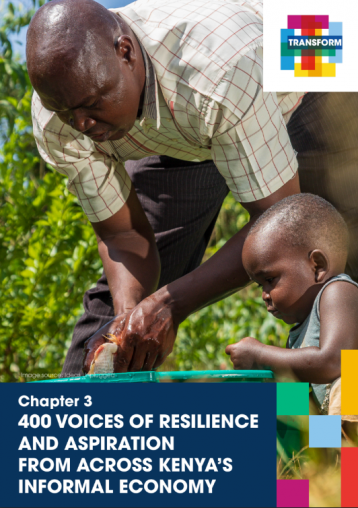
Chapter 4: Invisible Livelihood Strategies of Kenya’s Informal Economy
Building on insights from Chapter 3 ‘400 voices of resilience and aspiration: across Kenya’s informal economy’, this chapter delves deeper into specific livelihood creation strategies often referred to as “business models.” This chapter focuses specifically on nine invisible livelihood strategies across the three market segments:
- Food Service Providers: ‘Mama mboga’ (fruit and vegetable sellers), ‘Kibanda operators’, and ‘Sale of pre-packaged food or beverages’
- Creatives & Entertainment: ‘Dancers, actors, street performers’, ‘Musicians, DJs, MCs’, and ‘Social media content creators and influencers’
- Agri-livelihoods: ‘Distribution and transport of agricultural products’, ‘Aggregation and storage of agricultural products’, and ‘Sale of plants and flowers for domestic use’
To find out more, please download Chapter 4 here.
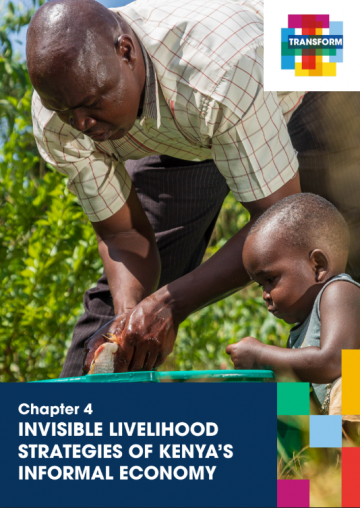
Chapter 5: A Day in the Life – Documenting the Lived Experiences
This chapter goes deeper into the informal economy, emphasising an inclusive approach to understanding the lived experiences of those who create their livelihoods within it. By leveraging various methods like storytelling, spoken narratives, group discussions, one one-on-one conversations, and citizen science data gathering, we capture a rich picture of their daily realities, motivations and aspirations.
To find out more, please download Chapter 5 here.
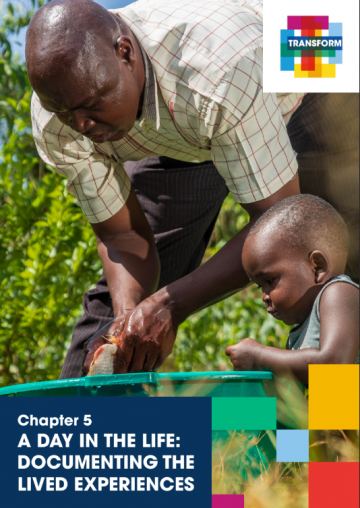
Chapter 6: Prosperity and the Future of Work in the Informal Economy in Kenya
This chapter explores the true meaning of “prosperity” within the three key segments of the informal economy: Food service provision, Creatives & Entertainment, and Agri-livelihoods. Moving beyond traditional definitions focused solely on material wealth, we explore the aspirations, values, and challenges that shape prosperity for informal workers.
To find out more, please download Chapter 6 here.
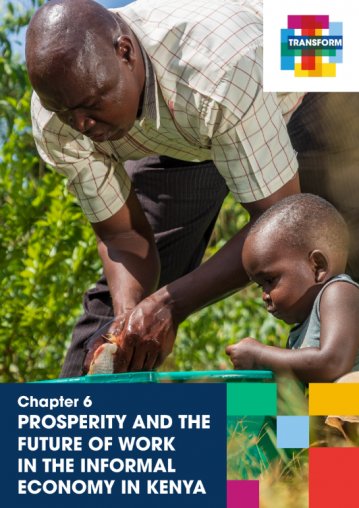
Chapter 7: A Portfolio of Co-designed Recommendations for Inclusive Growth in Kenya’s Informal Economy
This chapter captures the aspirations of over 700 voices we engaged with across Kenya’s informal economy ecosystem. Through inclusive participatory methods such as meetups, group discussions, interviews, and involvement of citizen scientists going deep in the field, we capture and share the collectively co-created visions for a future of work in the informal economy. We reflect on the shared challenges faced and co-created visions, from bridging the digital divide to securing fair policies. We conclude with a strong call to action for collective collaboration to build an inclusive, thriving future for all.
To find out more, please download Chapter 7 here.
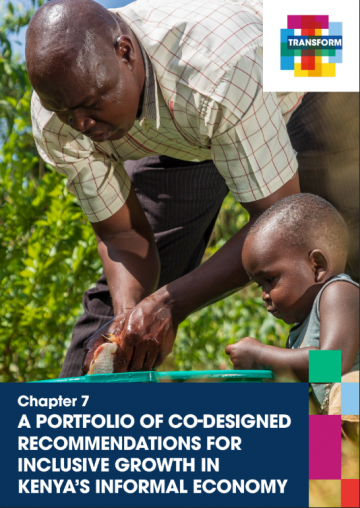
-
 Insights
Insights
Related impact stories
- Supporting mothers through the pandemic
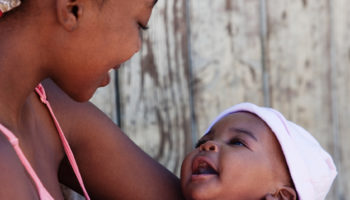 ActiveBliss Group is pivoting to support mums and babies during the COVID-19 pandemic.Transforming health through digital innovation
ActiveBliss Group is pivoting to support mums and babies during the COVID-19 pandemic.Transforming health through digital innovation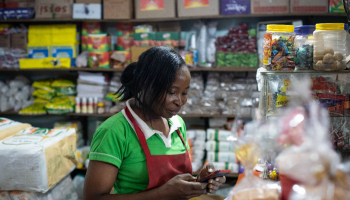

 Digital Health
Digital Health
Ensuring access to crucial healthcare information and products
 NaijaCare will equip PPMVs in Lagos with the information and resources they need to serve their communities through the pandemic.
NaijaCare will equip PPMVs in Lagos with the information and resources they need to serve their communities through the pandemic.
